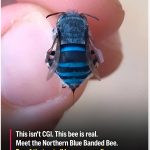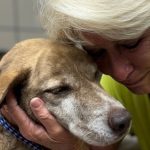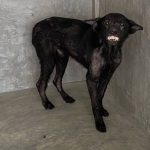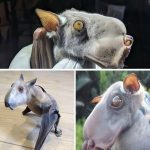A Lamb for the Broken: A Story of Loss, Love, and Quiet Compassion
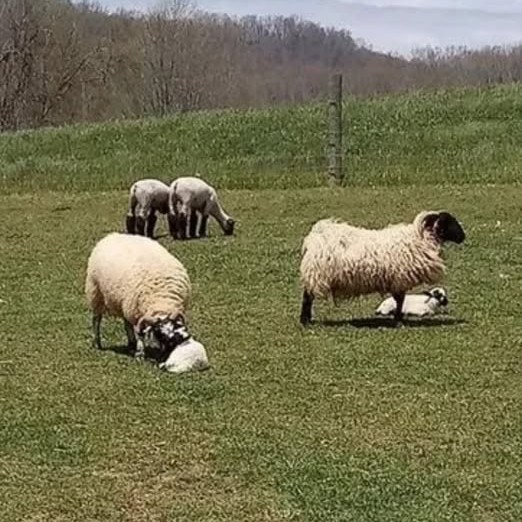
A Lamb for the Broken: A Story of Loss, Love, and Quiet Compassion
Last night was one of those nights that settles heavy in the bones—a night when the weight of life and death balances so finely you can feel the tension in every breath. The farm was quiet, save for the wind threading through the fences and trees, and the low murmurs of sheep resting in their pens. But in one corner of the field, something was stirring—one of our ewes had gone into labor, and we rushed out with flashlights and warm towels, ready to help welcome new life into the world. She had been restless for hours, her breathing labored but steady. We comforted her, whispering softly, offering water, stroking her neck. All the familiar rituals were in place. It should have gone smoothly, and for a while, it seemed like it would.

But when the moment came and the lamb was born, the silence was deafening. No flailing limbs, no tiny bleats. Just stillness. We worked quickly—rubbing its chest, clearing its nose, blowing gently into its mouth. Time suspended itself as we tried everything in our power to wake it. But sometimes, nature has its own plans. Sometimes, despite our hands, our hope, and our heartache, life slips away before it even begins. The lamb was stillborn.
The mother knew before we did. Even as we labored over her baby, she stood frozen, her eyes wide and empty, her breath uneven. When we finally laid the little body down beside her so she could see it, she nuzzled it with such desperate tenderness it broke us. And when we took the lamb away, when there was nothing left to do but let go, the ewe cried. Not the kind of sound you hear often from sheep—but a low, persistent wail that carried out across the night. She paced the pen, sniffing the ground where her baby had been, calling out into the dark for something that would never answer. She didn’t rest. Neither did we.

Grief, when witnessed in animals, is one of the most humbling experiences. There are those who will say it’s projection—that we see what we want to see. But there was no mistaking the sorrow in her eyes, or the way she stood staring out at the emptiness of the field, as if it might return her baby if only she waited long enough. There are no words to offer a grieving animal, no explanations that can ease their pain. All we could do was sit with her, in the silence, in the shared ache of loss.
Morning broke slowly, dragging light across a farm that felt heavier than usual. The ewe was still there, by the far fence, distant and hollow. But the sun brought with it something we never expected.

From across the pasture, another ewe had been watching. She had given birth to twins just a week earlier—healthy, strong lambs who were already learning to leap and stumble their way through the grass. She was a good mother—attentive, protective, gentle. But that morning, she did something we hadn’t seen before. Without prompting, without fanfare, she walked over to the grieving mother with one of her lambs by her side. There was no hesitation, no aggression, no guarding of her young. She simply arrived, stood still, and allowed the lamb to wander toward the other ewe.
We watched, holding our breath. Would the grieving mother accept it? Would the lamb be confused? Would the other ewe intervene?

What happened was quiet, instinctive compassion. The kind that doesn’t need permission. The lamb walked over and nuzzled the grieving ewe, who responded not with confusion or fear—but with a kind of desperate hope. She sniffed the lamb, let out a soft, quivering bleat, and then gently lay down as the lamb began to nurse. And the other mother? She watched for a moment, then turned and walked away, her other lamb skipping behind her.
There was no struggle. No confusion. Just acceptance. As if she had said, in the only language that matters, “Here. Take this. Take this piece of love. You don’t have to be alone.”
And now, out in the field, they both stand with a lamb at their side. Two mothers. Two babies. A rebalancing of love in a world that sometimes breaks our hearts. One birth led to death. Another led to healing. And through it all, something deep and unseen moved between them—an understanding of grief, of motherhood, of giving and receiving.

We often talk about animals as if they are lesser beings, driven by instinct alone, incapable of the nuance of human emotion. But anyone who has lived closely with them—on a farm, in the wild, even in a home—knows that isn’t the full truth. We’ve seen cows mourn lost calves. We’ve seen dogs refuse to leave the side of a dying friend. And now, we’ve seen a ewe give away a lamb not out of confusion, but out of compassion.
Because animals feel. They grieve. They comfort. They know loss. And maybe, in some ways, they know how to respond to it better than we do.
There was no ceremony that morning. No need for words. Just a quiet moment where one being saw another in pain and gave what she could. A moment of grace in muddy fields. A reminder that sometimes, the world—despite its cruelty—also knows how to make room for mercy.

All day, I kept returning to the field, drawn to the sight of them. The new pair—mother and borrowed lamb—had already begun to form their bond. The ewe stood protectively over her adopted baby, just as she would her own. The lamb followed her without question, trusting her warmth, her smell, her heartbeat. And from a distance, the ewe who had given the lamb away grazed peacefully with her other baby, unburdened, as if knowing she had done what needed to be done.
Later that afternoon, I sat by the fence and watched the sunset spill gold across the grass. The shadows lengthened, and the silhouettes of the sheep stretched like ink on a page. I thought of how loss comes for us all—unexpected, cruel, sometimes unbearable. I thought of that ewe pacing the pen, crying out for her baby. And I thought of the gift she was given—not as a replacement, because no life can replace another—but as a salve for the wound. A reminder that even when something is torn away from us, there can still be something soft offered in return.

It’s easy, in this world, to become hardened. To believe that survival means shutting out emotion. But what I saw today reminded me that survival sometimes means opening up—to grief, to connection, to the simple courage of kindness.
We are not so different from them.
We too cry for what we’ve lost. We too pace through the night, unable to understand why some things are taken. We too lean on each other in the face of heartbreak. And sometimes, if we’re lucky, someone comes along and offers us a lamb—something small, something kind, something enough to hold onto.

Today, two mothers stand in the field, each with a lamb by her side. And though only one of those babies came from the womb of its mother, both of them are being raised in love.
That, to me, is what matters most.
In the end, this little story—quiet and easily missed—is not just about sheep. It’s about us. It’s about the way grief carves into us, but also the way compassion can fill the hollow places. It’s about how the smallest gesture can have the deepest meaning. And how, in a world that often feels indifferent, sometimes there is still room for grace.
Sometimes, we need only to look out into a field at dusk and see two mothers, two babies, and the silent, sacred miracle of love shared.


